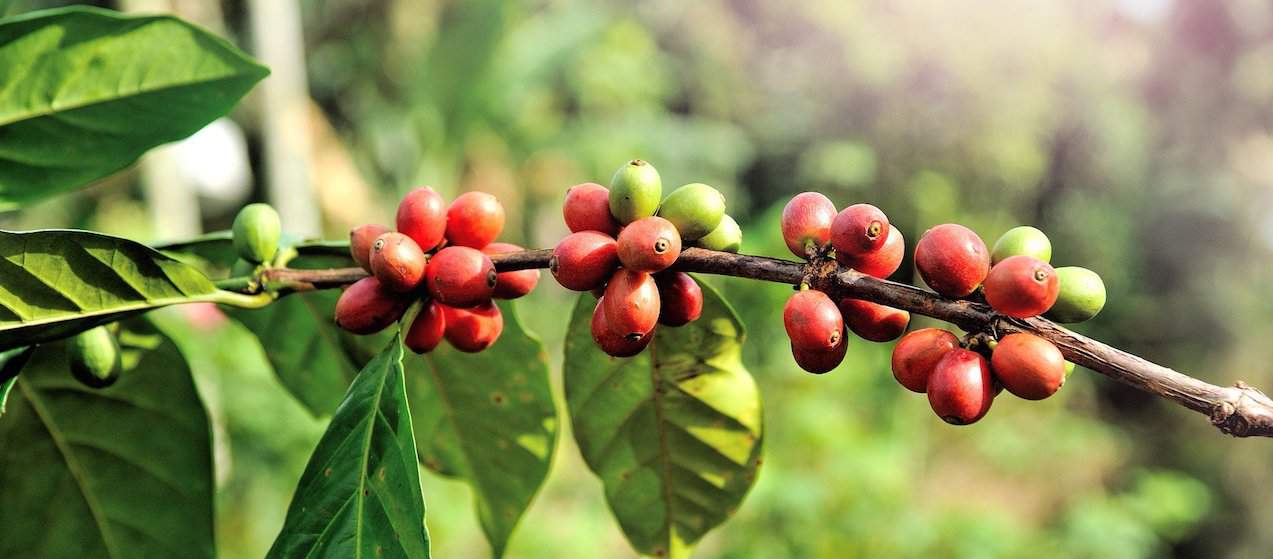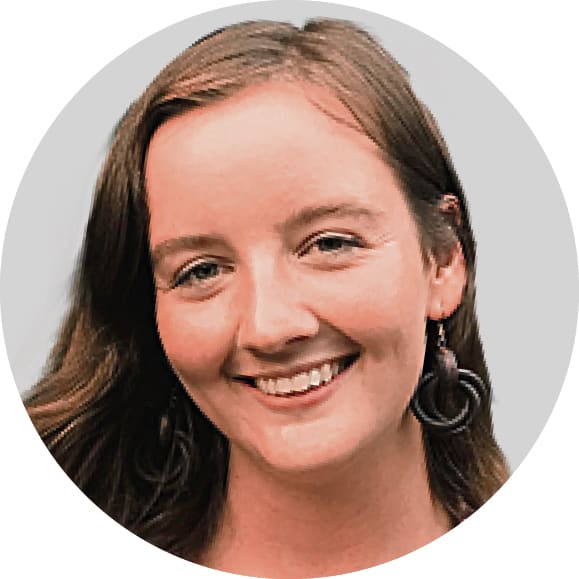
Since economy and society are embedded in the natural environment, there is an inseparable connection between environmental sustainability and human wellbeing. Awareness of environmental problems and the effects of our daily consumption of products such as coffee is an important requirement for the recoupling of economic and social progress.
According to the International Coffee Organization (ICO), around 1.4 billion cups of coffee are enjoyed every day around the world. That’s certainly a lot of coffee, and while many people love the taste and even struggle to start their day without a warm cuppa, not many stop to think where their coffee has been sourced from and how sustainable these supply chains are.
Brianna Kerr, a Young Global Changer from 2019, and her colleagues are working to change this. Together, they are involved in running Kua, a social enterprise that sources coffee from smallholder farmers in Uganda to market and sell to businesses and workplaces across Australia.
A long-term interest in development
Brianna’s interest in international development issues didn’t begin when Kua was founded in mid-2017. Indeed, it began much earlier. At the age of 15, she was serendipitously asked to sew textiles and donate old fabrics to a non-profit in her hometown of Cooma, located around 115 kilometres from Canberra, Australia’s capital city. Wanting to get more involved, she found herself in remote Papua New Guinea three months later with Rotary International. While there, she helped to teach local women how to sew on refurbished sewing machines but left pondering the sustainability of fly-in, fly-out aid.
What makes Kua different?
Now, as a Founding Director of Kua, Brianna continues to generate positive impact. Her, and her team’s focus is on improving the wellbeing for all those who touch their coffee including growers, drinkers and their team; promoting circular economy for all material inputs and resources starting with their coffee and packaging; and fighting for climate justice and vulnerable generations, both in Australia and Uganda.
“The concept of Kua is pretty simple”, says Brianna. “We do world positive coffee for workplaces to make businesses think a little differently about where their products come from and where they end up. Whilst most companies have footprints, we’re striving to leave a handprint: a net-positive impact on society and the environment.”
Their positive impact
Brianna, and her team’s positive impact has been considerable. To date, almost 142,000 coffees have been enjoyed in workplaces around Sydney which has contributed to over two tonnes of coffee grounds being diverted from landfill and repurposed in community gardens. It’s estimated that every kilogram of used coffee grounds collected eliminates 0.6 kilograms of carbon dioxide emissions which equates to a total of more than 1.2 tonnes of CO2 emissions saved.
Furthermore, 300 Ugandan women were provided access to Cents for Seeds, a program run by the Love Mercy Foundation, that provides them with a “30 kilogram loan of seeds such as beans or sesame, as well as a hand held gardening tool, educational workshops and access to savings groups, [thereby] empowering them to reinvest their earnings into food, education and health care.”
Kua also helps to connect the dots between smallholder farmers in Uganda and consumers in Australia through powerful storytelling and the use of innovative virtual reality technology.
“In conjunction with some incredible experts at the University of New South Wales in Sydney, we were able to create an immersive virtual reality experience to help take people to Uganda. Our customers put on the headset and are transported to the coffee plantations on the misty slopes of Mt Elgon. It’s pretty amazing to watch their reactions – it really does help close the producing-consuming gap.”
Some words of advice
Although Brianna professes to be “no expert,” some advice that Brianna offers concerning development and human rights is “nothing for them, without them.” ”Essential in achieving change”, she adds, is the need to “collaborate, listen and co-design solutions with those that are at the centre of your work. Check yourself constantly and be cognisant of the ways that your biases and experiences can influence your work and others.”
Another challenge is to “think about the entire system when designing solutions for part of the system. That’s sustainability.” Consider Kua, or other social enterprises, and how they work at the nexus of social and environmental change, acknowledging that one doesn’t come without the other – a systems approach to change.
Innovative thinking is also required. “Think and problem solve like a business but lead with the heart of an impact organisation. These two worlds are best when combined, not separated”, she says. Strive to “connect the dots between where your products come from and where they end up” and “test new business models to help respond to the changing needs of people around the world.”
A call to action
Reflecting on her experiences, she says her interest in the social impact space is probably rooted in her mum’s “beautiful and indiscriminate compassion.” She encourages others to think about how they can contribute, no matter how big or small, as we continue to live in a world striving to overcome many complex, multi-dimensional challenges including “modern slavery, digital security, extremism [and] the increasing wealth gap.”
What is needed is “courageous leadership, innovation and synergy to overcome these challenges”, says Brianna. “We need to come together now more than ever or we’ll fall apart!”
Written by Ken Fullerton, YGC 2017.
___
The views and opinions expressed in this article are those of the authors and do not necessarily reflect the views of the Global Solutions Initiative.
___

Brianna, Young Global Changers Ambassador and 2019 Young Global Changer, is the Director at Kua, a circular coffee supplier for workplaces in Sydney, Australia. All their profits are reinvested to empower women. All used coffee is collected and repurposed.
 Ken, a 2017 Young Global Changer, currently works as a management consultant for ARTD Consultants – one of Australia’s leading public policy consulting firms – where he helps government agencies and non-profit organisations make evidence-informed decisions and track and evaluate outcomes in order to continuously improve their performance.
Ken, a 2017 Young Global Changer, currently works as a management consultant for ARTD Consultants – one of Australia’s leading public policy consulting firms – where he helps government agencies and non-profit organisations make evidence-informed decisions and track and evaluate outcomes in order to continuously improve their performance.
